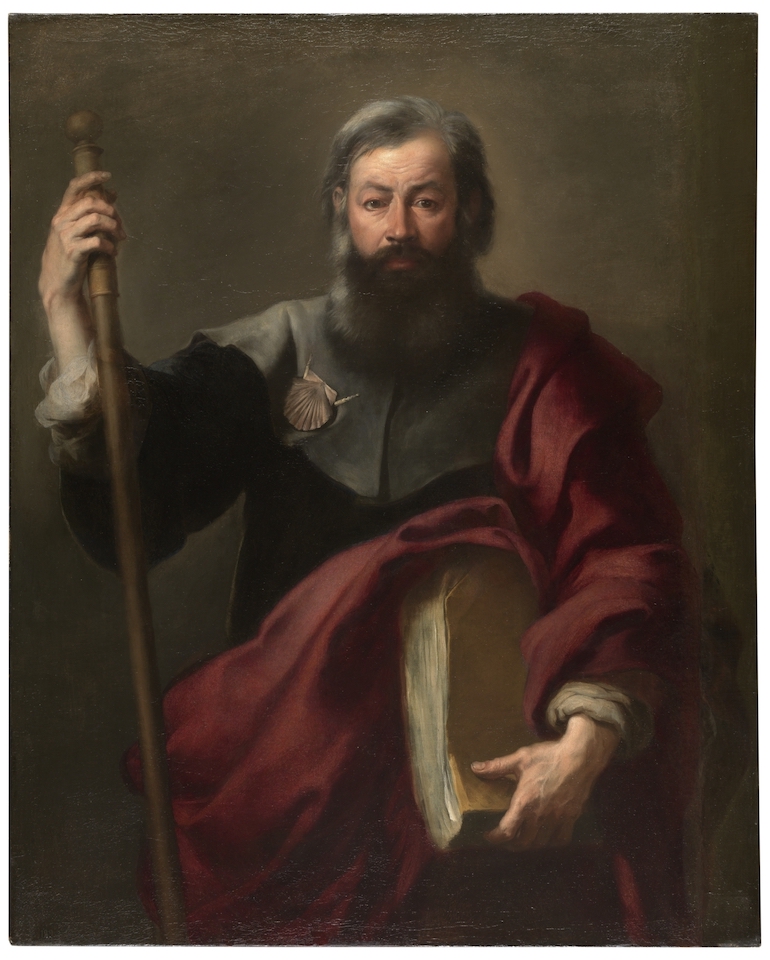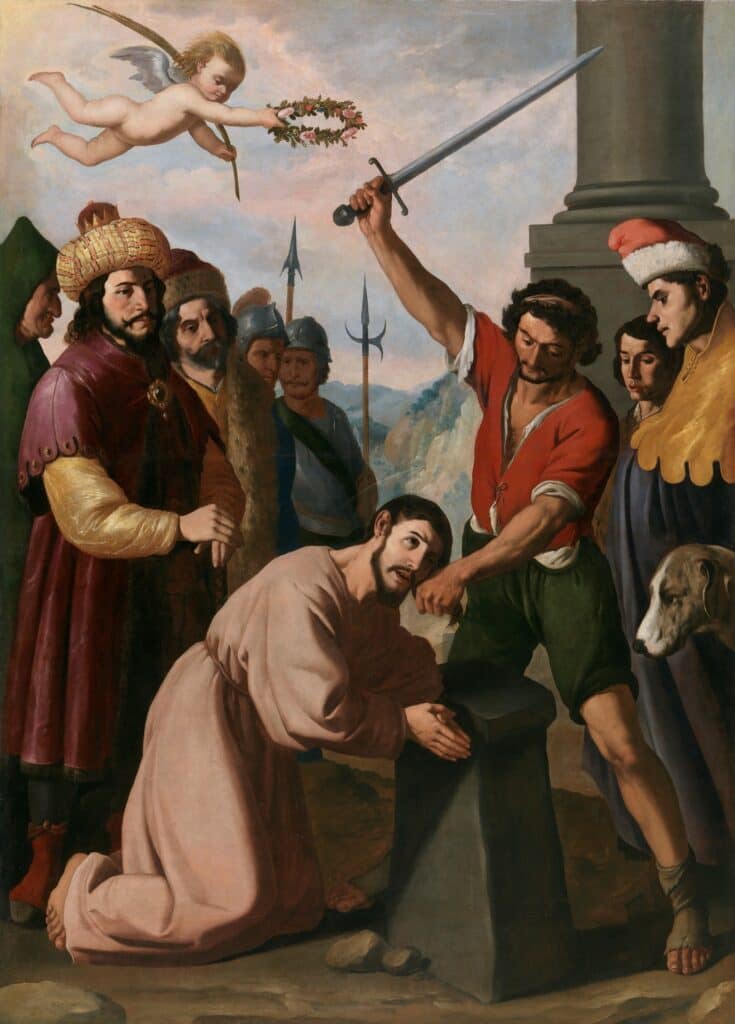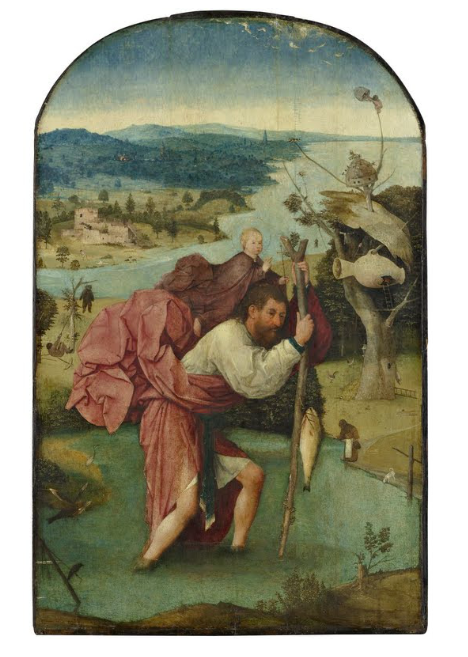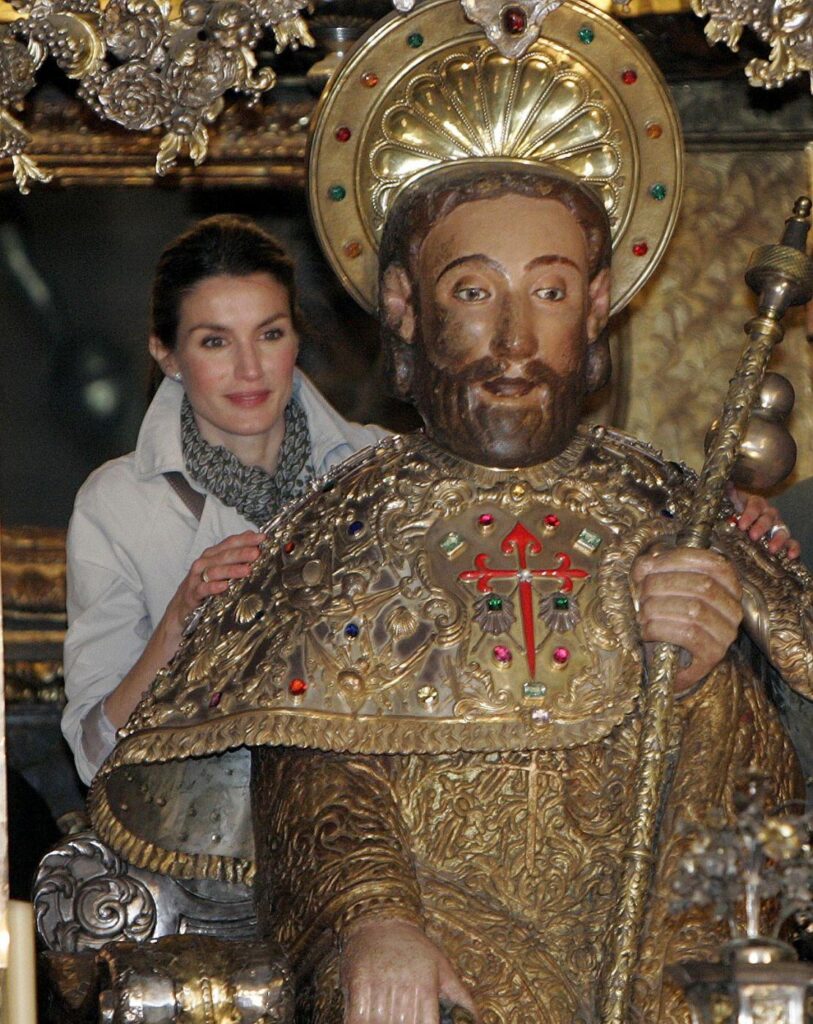Who was Saint James?
Saint James (or Santiago in Spanish) was one of the twelve Apostles of Christ, according to Catholic belief. After the death of Christ, Saint james was sent to the Roman province of Hispania (current Spain and Portugal) to preach the Gospel.

What is a Feast Day?
A Feast Day is how the Catholic Church refers to the day of the year in which a particular saint is venerated. The feast day usually commemorates the saint’s death, such as in the case of Saint Patrick, who died on March 17th.
Why is Saint James’s Feast Day on July 25th?
The quick answer is: no one really knows.
However, since medieval times the Feast of Saint James the Greater has been celebrated on July 25th. Tradition believes that he was martyred on this date in the year 44 AD. However, some historians argue that July 25th was chosen so as to coincide with the feast day of Saint Christopher.
Saint Christopher is best known for having helped Christ, in the form of a Child, to cross a river. He was extremely popular in the Middle Ages. However, at some point, the Church decided to associate Saint James with Saint Christopher by venerating both on the same feast day. This may have been because Saint Christopher was the patron saint of travellers and Saint James was the most travelled of all the Apostles.
Over time, Saint James became more popular and Saint Christopher’s Feast Day was moved to July 10th. The popularity of the Way of Saint James (El Camino) to his tomb in Santiago de Compostela may have had something to do with this. Hence, since medieval times, July 25th is the Feast Day of Saint James.


What happens in Santiago de Compostela on July 25th
July 25th is the conclusion of a two week celebration that takes place in Santiago de Compostela. There are also celebrations in other parts of Galicia and Spain as Saint James/Santiago is the patron saint of Galicia and all of Spain. This festival combines religious and official solemnity, tradition and entertainment, which turn the entire city into a fun fiesta.
July 24th and 25th are the two main days. On the night of July 24th there is large firework display visible from almost anywhere in town. And on July 25th, during the High Mass that is held in the Cathedral, the King of Spain makes the traditional offering to the Apostle James. During this mass, the botafumeiro is always swung. As July 25th is also Galicia Day, also expect to encounter all sorts of cultural activities. In most cases these celebrate Galician singularity and culture. For example, you will encounter music bands and troupes from all over Galicia, performing traditional dances and in regional outfits.







